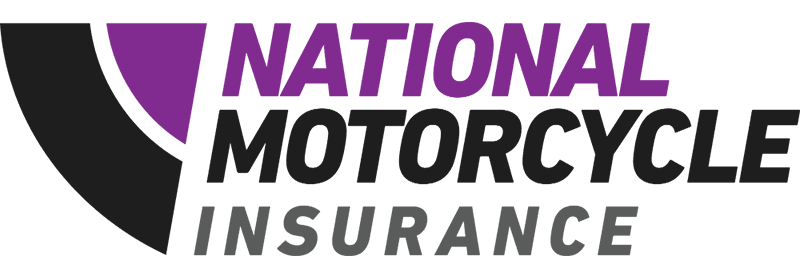Compare other products
We currently don't have that product, but here are others to consider:
How we picked theseCheap motorcycle insurers
We sourced quotes from 5 different providers and found NRMA to be the cheapest. It is around 60% cheaper than the most expensive option we found which was AAMI.
Keep in mind, your driver profile may differ to the one we used and our figures should be used as a guide only. The best way to find a cheaper policy will be to compare as many options as you can.
| Providers | Annual Cost |
|---|---|
 | $758.98 |
 | $1,076.61 |
| $756.38 | |
 | $1,313.25 |
| $1,847.09 |
What are the main types of motorcycle insurance?

Compulsory third party (CTP)
CTP cover is a legal requirement – you must have it to register your motorcycle in Australia. It protects riders for personal injuries caused by your motorbike after an at-fault accident and compensates those who are injured.
It won't cover you for repair costs for your motorcycle or other peoples' vehicles or property.

Third party property
The most basic optional insurance. Third party cover offers a bit more peace of mind as it covers the cost of damages caused by your motorcycle to others' property. It'll also pay your legal costs if you get sued for any damages you've caused.
However, third party property won't cover costs for the repair or replacement of your own motorcycle.

Third party, fire and theft
In addition to the cover offered by third party property damage, it'll also cover any damages to your bike from fire or theft.
This type of cover doesn't include the cost of repairs to your bike if it's involved in a traffic accident.

Comprehensive
The highest level of cover available. Comprehensive insurance will cover most accidental damage, whether or not you're at-fault, plus natural disasters such as storms, floods, hail and even earthquakes. It also covers you for theft, vandalism, third party property damage and damage caused by uninsured drivers.
Comprehensive cover can replace your motorbike if it's written off within a set time period after being registered. It can also cover you for accidents if the rider of the bike isn't a nominated driver.
Finder survey: How often do Australians compare or switch their motorcycle insurance?
| Response | |
|---|---|
| Once a year | 46.15% |
| I never compare or switch | 23.08% |
| Once every 3+ yrs | 17.95% |
| Every 2 yrs | 10.26% |
| More than once a year | 2.56% |
What does motorcycle insurance cover?
Here's what is typically covered by the 3 key types of motorcycle insurance:
| Feature | Comprehensive | Third party, fire and theft | Third party property |
|---|---|---|---|
| Accidental Damage |
|
|
|
| Intentional Damage |
|
|
|
| Storm or Flood |
|
|
|
| Fire |
|
|
|
| Theft |
|
|
|
| Earthquake |
|
|
|
| Emergency Accommodation Transport and Repairs |
|
|
|
| Legal Liability |
|
|
|
| Towing Cost |
|
|
|
| Locks and Keys |
|
|
|
| Riding Gear |
|
|
|

"We recently bought a new motorcycle and wanted to organise a comprehensive motorcycle insurance policy that was affordable yet offered through coverage. The most important factors to us were; ability to choose an agreed value, high cover limits for motorcycle apparel and affordability. We ended up going to QBE (they came in cheaper than others we got quotes for), allowed us to insure for an agreed value and had substantial cover for motorcycle apparel."
What else should I look for in a policy?
Here are some features that you can get with a motorcycle insurance policy:

Helmet and riding gear cover
Your riding leathers, helmet and other gear can be expensive. A lot of policies can cover theft or damage of helmets and riding gear.

Choice of repairer
If you have a preferred mechanic you want to use, you'll often need to pay a little extra for your own choice of repairer.

Agreed or market value.
If market value isn't a fair reflection of your bike's true worth, for example if you need insurance for a modified motorcycle, you might want to look for policies that offer agreed value as an option.

New replacement
If a relatively new motorcycle is written off following an insured event, you might be able to get a brand new equivalent replacement. There's usually a time limit of 2 years for this feature.

Keys and locks
This provides cover for the cost of re-keying or re-coding locks if your keys are stolen, often up to around $1,000.
How can I lower the cost of my motorcycle insurance?
To be eligible for lower premiums, you could:
- Secure your motorcycle. You'll often get lower premiums if you can keep your bike in a secure lock-up or a garage at night. Also, installing an alarm or immobiliser can also help.
- Pay premiums annually. Many insurers will charge less overall for premiums paid annually rather than month-to-month. Comparing motorcycle insurance quotes on a regular basis is also a good idea.
- Ride safely. Having fewer claims will mean you are in a better position for cheaper motorcycle insurance. Those with motorcycle qualifications may also be able to score savings.
- Restrict riders. While you can get coverage for other drivers listed on your policy, it can drive up the price of your premium. Keep costs low by restricting younger, inexperienced riders or limiting the number of riders to just yourself.
- Compare your options. One of the easiest ways to save on your motorcycle insurance is to compare policies. There are plenty of offers available on the market, but the key is finding one that aligns with your needs and budget. It's recommended you obtain at least 3-4 quotes before making your decision.
- Look for discounts. In addition to finding the cheapest quote, you may also be entitled to a range of savings, such as loyalty bonuses or discounts for buying your policy online, multi-policy discounts and more.
Frequently asked questions
Sources
Read more on Motorcycle Insurance
-
mi-bike motorcycle insurance review
Your guide to Mi-Bike motorcycle insurance.
-
Compare third party property damage (TPPD) motorcycle insurance
Your guide to getting third party motorcycle insurance.
-
Budget Direct Motorcycle Insurance Review
Budget Direct provides cheap motorcycle insurance options for Australians.
-
Motorcycle insurance Victoria
VIC riders have plenty of motorcycle insurance options to fit their riding style and to protect them from theft, property damage, natural disasters and more.
-
Compare third party fire & theft (TPFT) motorcycle insurance
Read on to see if Third Party Fire & Theft Motorcycle Insurance is right for you.
-
Veteran, vintage and classic motorcycle insurance
Your guide to protecting your vintage, veteran or classic motorcycle.
-
Motorcycle insurance QLD
Compare motorcycle insurance policies in Queensland.
-
Best motorcycle insurance Australia
Want to know what to look for in order to find the best motorcycle insurance policy for you? Read on.
-
Compare comprehensive motorcycle insurance
Guide to comprehensive motorcycle insurance with Australian brands.
-
QBE Motorcycle Insurance Review
Review of QBE Motorcycle Insurance.

